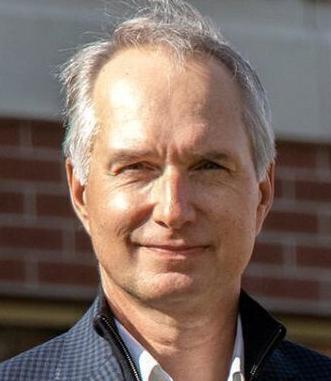The latest incident of public shaming occurred last month when the CEO of Astronomer was caught cuddling with the company’s human resource director on the . It took only a few hours for the video to be shared by millions. Both executives have since resigned.
Public shaming is nothing new. It was the subject of Nathaniel Hawthorne’s "The Scarlet Letter." But in the past, shame was typically confined to the relatively small social circles of family, friends and acquaintances. In recent years, however, public shaming has become a popular form of national entertainment.
That’s chiefly due to the dominance of social media as a form of communication, which not only allows anyone to post words and images for public consumption but also allows millions of people to pass instant judgement. Sometimes, those judgments may be deserved. But they are frequently based on partial or even false information, as in the case of the Ole Miss freshman who was widely condemned by people who had no idea who she was based solely on false and malicious rumors spread first on YikYak and later amplified by Pat McAfee on his sports show.
People are also reading…
Social media may be the means by which public shaming is enabled to become a national pastime, but underlying this phenomenon is a moral shift in which social norms traditionally enforced through guilt are now enforced through shame.
That moral shift has profound implications for the future of democracy.
That’s because a healthy democracy depends on most people regulating their own conduct through self-restraint. This requires an internal set of rules or norms which we know as “conscience.” Conscience, in its essence, consists of the capacity for guilt.
We tend to think of guilt as a bad thing, and that’s because when we feel guilty, we feel bad for having done something wrong. But the capacity for guilt is extremely important. It means we are able to regulate our own behavior — to choose to do or not do something — based on an internal set of standards of right and wrong.
Shame is something else entirely. Shame is the feeling of being seen to do something wrong. It’s not one’s own judgment one is responding to but the judgment of others. The natural response of being ashamed is to hide one’s face. The natural response of feeling guilty is to apologize.
Shame and guilt are both moral emotions. Shame is a response to external standards, while guilt is a response to internal standards. They each have their uses and their limitations.
Let me illustrate the difference.
When I was about 12 years old, I was out after dark with a small group of friends walking down an alley. One of the boys I was with picked up a small rock and threw it at a streetlight. Before long, all four of us were competing to see who could hit it first.
None of us had very good aim because it took a long time, but eventually I managed to strike a direct hit. There was a loud crack, a hiss, and then the light went out. My friends all congratulated me, and I soaked up their praise.
I felt a little bit guilty at the time. I was trying to impress my friends, but I did not really want to damage the streetlight, and my own standards told me it was wrong to destroy someone else’s property. But I did not feel shame because the people who witnessed the action all approved of it. On the contrary, the praise of my friends encouraged me to feel proud of what I’d done.
When I got home, however, the pride I had felt only a few moments before evaporated. My parents asked what I had been up to, and I just mumbled something about nothing much. I knew if I told them about damaging the light they would disapprove, so I hid my actions from them. That’s shame.
Shame can be useful for reining in those who have an underdeveloped sense of guilt, but it doesn’t really motivate people to refrain from wrongdoing. It just encourages them to be careful not to get caught and to conclude that those who do get caught are just unlucky.
And that’s the problem. The mob is fickle. Its attention is sporadic and short-lived, its standards subject to erratic moods. Those who are caught up for a time in its exuberance of praise or blame may have their lives changed dramatically for better or worse, but seldom for good or justifiable reasons.
If we expect fellow citizens to act decently in our organizations and communities, then we can’t rely on shame alone to keep them in line. A healthy democracy depends upon most citizens having a well-developed capacity for guilt so that people can be trusted to regulate their own behavior.
A society that relies chiefly on guilt to enforce its rules tends to be more trusting, more open, and more forgiving, but as that society relies more on shame it will tend to become less trusting, more litigious, and less tolerant of behavior it doesn’t understand or like. Because it can’t count on people to regulate their own behavior, it will insist upon more surveillance and oversight to keep people in line.
The solution is to opt out of the social media blame game. Choose to live your own life responsibly. Ask yourself: what can I do today to live a little bit better, to be more truthful, more generous, more patient and kind?











